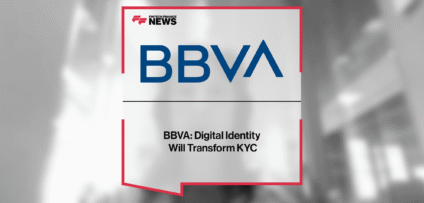Breaking News

Emerging Market Economies Turn to Money Transfers From Expats – Bangladesh Up 12%, Pakistan Up 8%
Economies in emerging market countries have seen a significant increase in overseas workers sending money home this year, shows research by ACE Money Transfer, a leading online remittance provider.
Data compiled by ACE Money Transfer shows that several major emerging market economies have seen a significant rise in money transfers, known as remittances, by expats. This includes countries like Bangladesh, which has seen a 12% increase in remittances on average over the past year, Pakistan (8%) and the Philippines (3%).
Many Governments have turned to remittances from overseas workers as they struggle with spiralling inflation, rising interest rates and a surging dollar. ACE Money Transfer explains what actions they are taking to increase the flow of remittances.
What Governments are doing to boost the flow of remittances
Bangladesh
Foreign remittances are a lifeline to Bangladesh and have risen by 12% in the past year*.
To encourage the flow of remittances in 2022, the Government increased a cash bonus for remittances from 2% to 2.5% of the value of money transferred from January 1 2022. In addition, the Government announced in May 2022 that it was relaxing rules on high value money transfers. Non-resident Bangladeshis no longer have to present documents when sending $5,000 or more in remittances in order to qualify for the 2.5% cash incentive.
Pakistan
Remittances to Pakistan have grown by 8% over the past 12 months**, as policies aimed at encouraging expats to send money home continue to be a success.
This has largely been driven by the success of the Roshan Digital Account, allowing non-resident Pakistanis to access banking services within Pakistan remotely. Net inflows into Roshan Digital Accounts have risen every month since the programme’s launch in September 2020, rising from $7m at launch to over $6.4bn in June 2022. Following the success of the Roshan Digital Account, this month the
Government has launched the Roshan Pension Plan for overseas Pakistanis. This allows non-resident Pakistanis to set up pension plans for their post-retirement life in Pakistan.
This increased inflow of remittances, in part from the Roshan Digital Account, has helped stabilised Pakistan’s economy and supported its foreign currency reserves. These remittances have provided a lifeline to many families in the country, giving them crucial funds for everyday needs such as food, healthcare and housing.
The Philippines
The Philippines has seen a 3% rise in remittances over the past year*. The country consistently ranks as one of the world’s top recipients of remittances, with inward remittances to the country reaching a record $34 billion in 2021**.
Recognising the importance of remittances in the Philippines’ ongoing economic recovery, new President Bongbong Marcos plans to continue encouraging overseas workers to send money home, referring to them as “Bagong Bayani” (modern-day heroes).
India
Remittances to India continue to be crucial to the economy, particularly as it recovers from the effects of the pandemic.
To help increase the flow of remittances to the country, India’s Government has enacted a range of favourable policies. The Government chose not to tax inward remittances sent to the country from Indian expats, despite introducing a new Bill towards the end of 2020 with a 5% tax on outward remittances sent from India.
Gambia
Boosting the flow of remittances is a key priority of Gambia’s Government and forms Objective 20 of its National Employment and Action Plan 2022-2026, which aims to drive economic growth in the country. To help this, the Government this year launched the National Financial Inclusion Strategy. This aims to lower the cost of financial services, including money transfers, to help improve access and increase their usage among the lowest income segment of the population.
Ghana
Remittances are central to Ghana’s growing economy and rose to $4.5 billion in 2021, up from $3.7 billion the previous year.
To encourage expats to send money back to Ghana, a key focus of President Nana Akufo-Addo’s Government is promoting the Diaspora Investment Desk. This programme aims to raise awareness of investment opportunities in Ghana and make it easier for overseas Ghanaians to invest in the country.
Nepal
Remittances are a lifeline to Nepal’s economy and make up a significant amount of the country’s foreign currency reserves.
To facilitate the flow of remittances, the Nepalese Government has introduced several measures over the past year. This includes increasing the ceiling per transaction from 50,000 rupees ($391.20) to 2 lakh ($1,564.79). The cap of sending 12 remittances per year has also been removed.
Nigeria
Remittances to Nigeria are expected to increase significantly this year, due to higher inflation and favourable remittance policies.
In 2021, the Nigerian Government launched the ‘CBN Naira 4 dollar’ scheme as one of many initiatives to boost the flow of remittances to the country. The scheme gives a five-naira ($0.012) bonus to both senders and recipients of money transfers for every one US dollar remitted. This helped remittances reach $19.2 billion in 2021,almost treble the $6.7 billion in foreign direct investment the country received in the same year****.
Companies In This Post
- How USAA Builds Digital Experiences Around Its Members Read more
- Spayce: Organic Growth, Own Tech, New Wallet Read more
- EXCLUSIVE: “Check, Check… and Check!” – Pilar Fragalà, CBI in ‘The Fintech Magazine’ Read more
- BBVA: Digital Identity Will Transform KYC Read more
- Pocket Network Is Pioneering ‘DePIN for Data’ Read more















